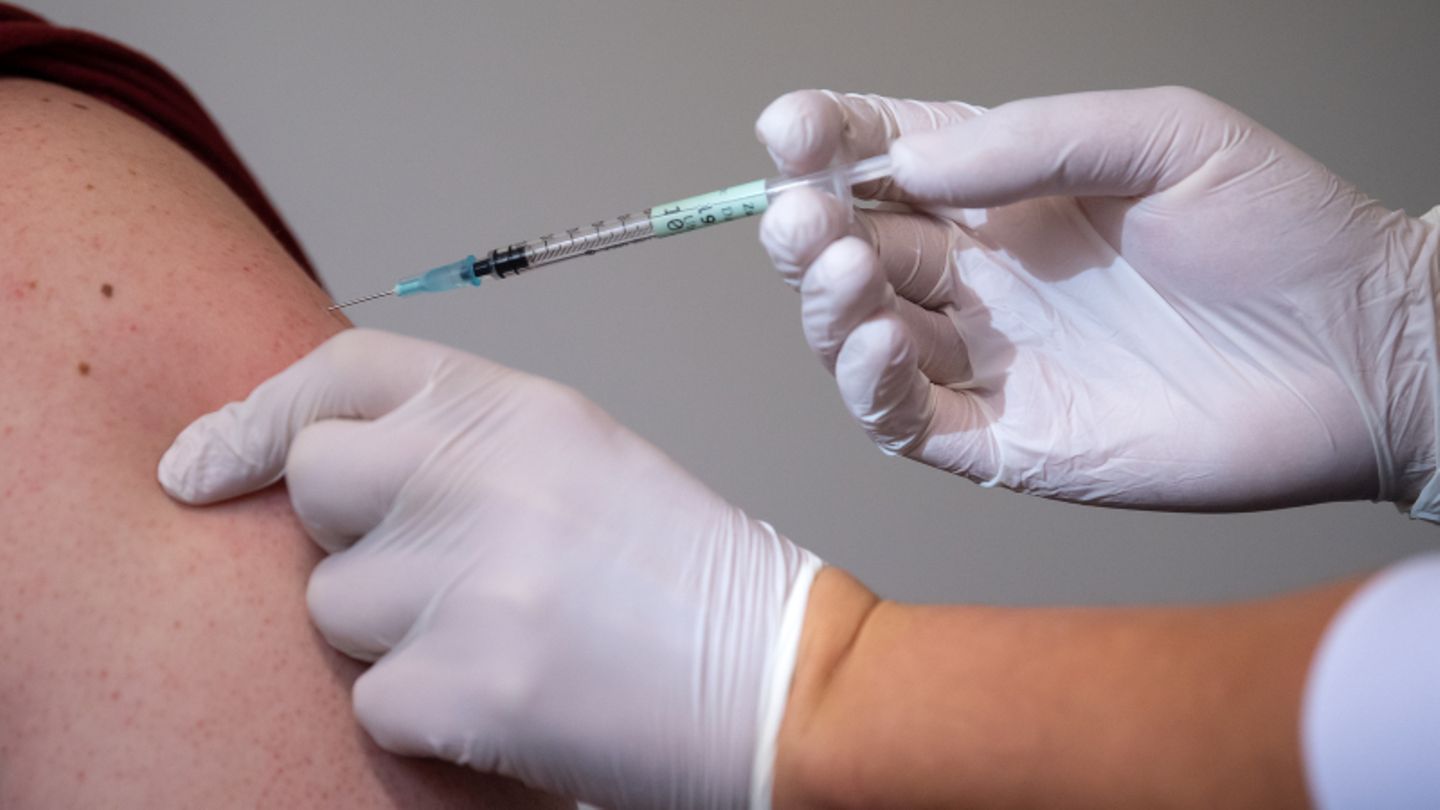+++ breaking news +++
From now on, people in Germany can have themselves boosted after three months instead of the previously recommended six months. This is recommended by the Standing Vaccination Commission (Stiko) because of the impending Omikron wave.
The Standing Vaccination Commission (Stiko) recommends booster vaccinations because of the omicron variant of the coronavirus after at least three instead of six months. The committee announced on Tuesday that the recommendation to shorten the vaccination interval applies to adults with immediate effect. It aims to improve protection against severe diseases caused by Omikron in the population and to reduce the transmission of the variant. It is to be expected that Omikron will determine the infection process in this country “within a very short time”.
According to Stiko, older and previously ill people should be given the injection because of their higher risk of Covid-19. The two mRNA vaccines that are used for boosting (Comirnaty from Biontech / Pfizer and Spikevax from Moderna) are “completely equivalent in terms of their effectiveness”.
Stiko: Vaccination decreases after three months
Current data indicate a significantly reduced vaccination protection after the basic immunization compared to the Omikron variant, explained the Stiko. This decreases significantly after three to four months. After a booster vaccination, the protective effect against symptomatic infection with the Omikron variant increases again significantly. It can currently be assumed that protection against severe disease will also increase. Nothing can currently be said about the duration of the protection.
The Stiko had previously recommended that a booster vaccination should usually be given every six months after the last vaccine dose of the basic vaccination. A shortening of the vaccination interval to five months could “be considered in individual cases or if sufficient capacities are available”. For immunocompromised people, an even shorter interval between the second and third dose was possible. In contrast to some earlier updates, the change made on Tuesday is already a final Stiko recommendation.
The European Medicines Agency (EMA) recently announced that booster vaccinations can be given after just three months. Biontech founder Ugur Sahin had also spoken out in favor of an earlier third vaccination because of Omikron. In the state of Berlin, the vaccination interval, which was shortened to three months, was announced on Monday in view of an expected Stiko recommendation.
Expert advice: Boosters alone cannot stop Omikron
The RKI has assessed the risk for people twice vaccinated and recovered because of Omikron as high since Monday. For unvaccinated people it remains “very high”. For people with a booster vaccination, the institute spoke of a moderate risk. Scientists have already documented Omicron infections in people who had already received a booster vaccination.
Experts emphasized that boosting alone against the strongly mutated Omicron variant should not be sufficient. “A massive expansion of the booster campaign can slow down the dynamics and thus reduce the extent, but not prevent it,” said a statement by the Federal Government’s new Expert Council, which also includes Stiko boss Thomas Mertens. According to mathematical models, an overload of the health system and the restriction of the critical infrastructure can only “be contained with strong contact reductions”. The Robert Koch Institute made a similar statement on Tuesday.
In contrast, immunologists had judged the boosting of immunologically healthy people to be of little use after an even shorter period of time, around four weeks. The booster then works much worse because certain immunological processes are not yet completed.
Source From: Stern




